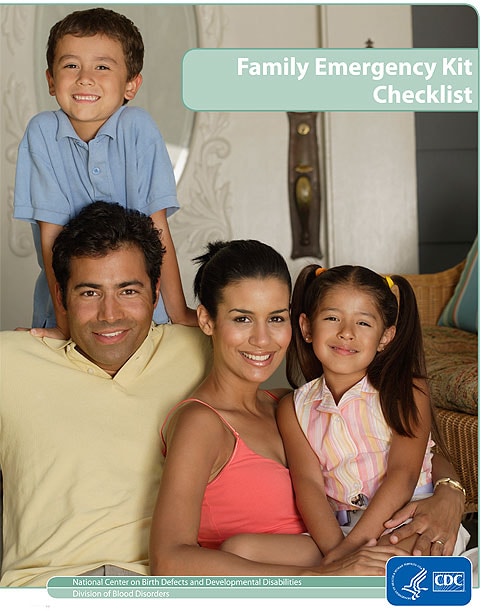Emergency Preparedness Info for People with Blood Disorders
On This Page
Anyone in need of emergency medical assistance should call 911 or go to your nearest hospital emergency room.
Thalassemia
Cooley’s Anemia Foundation
- Emergency Preparedness Checklist [PDF – 1.20 MB]
It’s important that all families develop a plan of action to use in the event of an emergency situation.
Hemophilia

Centers for Disease Control and Prevention (CDC)
- Family Emergency Kit Checklist [PDF – 1.08 MB]
Your family may not be together at the time of a disaster so it is important to develop an emergency plan before disaster strikes.
Hemophilia Federation of America
- Emergency “to go” Bag [PDF – 69.3 KB]
It is recommended that every person with a bleeding disorder have a “to go” bag ready at all times.
National Hemophilia Foundation
- Steps For Living Emergency Preparedness
Find information on emergency planning, essential items to bring to the ER or hospital, wearing a medical alert ID, keeping extra supplies on hand, and emergency preparedness for college students.
- Recommendation Regarding Home Factor Supply
All patients with hemophilia, regardless of whether they are on home treatment or not, need an emergency supply of factor for self- infusion or to take to the nearest emergency department or medical facility. - If your Hemophilia Treatment Center closes because of a declared emergency or disaster, contact HANDI, the NHF’s Information Resource Center at 1-800-42-HANDI (800-424-2634) for information about other HTC locations and other emergency resources. For information during non-emergency times or regular business hours, HANDI staff members are available Monday through Friday, 9:00am to 5:00pm EST, to answer your questions. Call 1-800-42-HANDI (800-424-2634) or email handi@hemophilia.org.
Find a Treatment Center
Click on one of the following links to locate a research and treatment center: